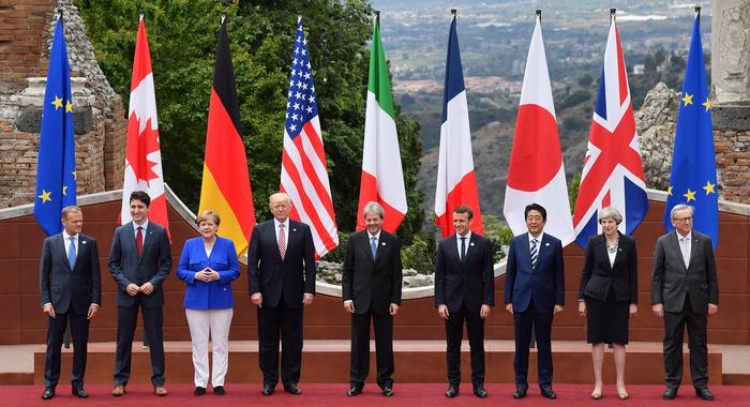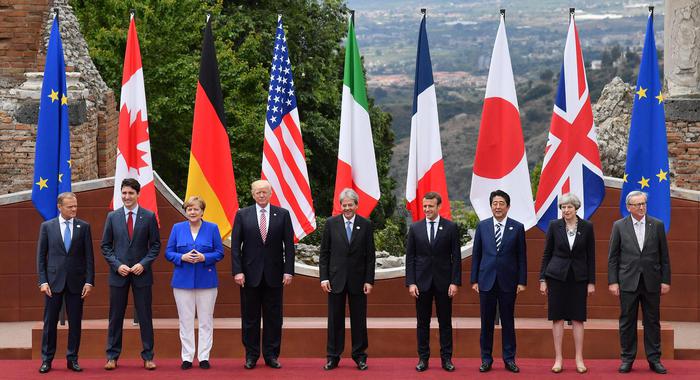The declaration against terrorism outlines the strengthening of cooperation among the seven major economies of the western world on various issues, including cutting resources and channels of funding for extremist groups.
"We G7 leaders express our most keenly felt closeness and our deeply felt condolences for the brutal attack and the victims in Manchester which shows how we must boost our efforts and turn our commitments into action,” the leaders said in a statement.
“We condemn terrorism and all its manifestations in the strongest possible way: the fight against terror remains one of the G7's top priorities. We are united in making our citizens safe and preserving their values and lifestyles."
Italian Premier Paolo Gentiloni said during the signing of the anti-terror declaration that it was a strong message of friendship, closeness and solidarity with Great Britain.
British Prime Minister Theresa May thanked the seven leaders for their support over the Manchester attack and encouraged cooperation to tackle terrorism.
"I think it is important to show this determination by all countries to fight terror and safeguard our citizens," May said.
May also stressed the importance of moving from fighting on the ground to working on the Web to defeat terrorist groups.
Italian diplomatic sources said that a compromise had also been reached on the migrant issue.
"The global approach to the problem, including a long-term one with the involvement of the countries of origin and shared responsibility, is recognised," the sources said.
However, talks on climate change were more intense, and were suspended as US President Donald Trump took time out for further reflection so as to make “the right decision” on the issue.
German Chancellor Angela Merkel said that the USA was clearly asked to respect the commitment made with the Paris climate accords.
Trump has gone on record in the past dismissing global warming as a "hoax".
With ANSA












